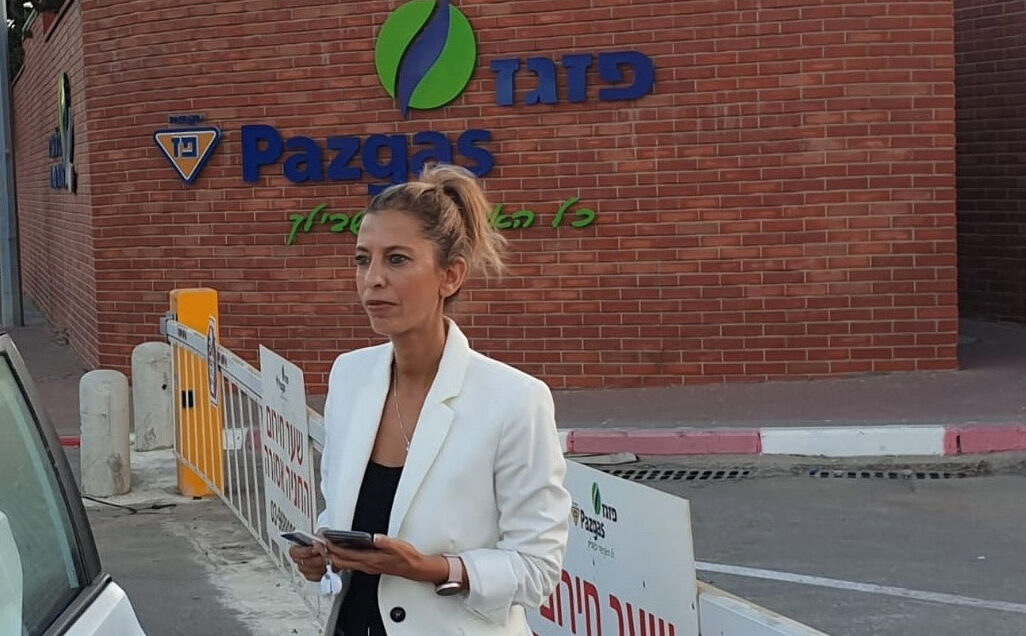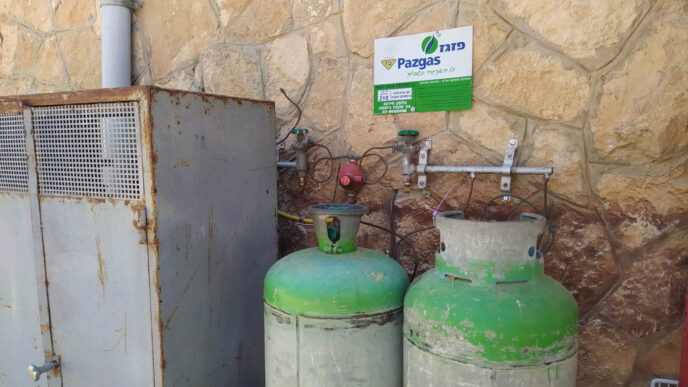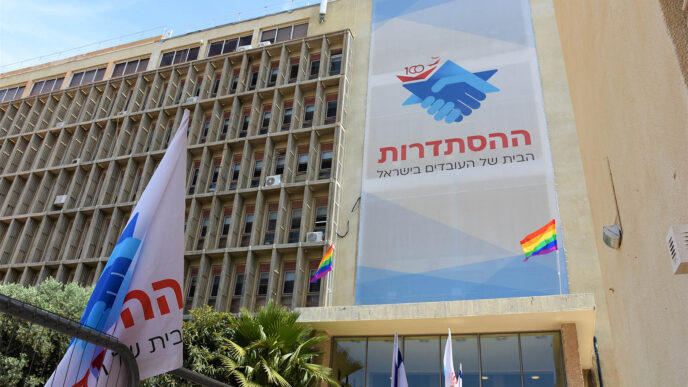
Pazgaz, the largest cooking gas company in Israel, has 470 employees. This week, those workers announced that, like their colleagues at Amishragaz and Super Gas, they are unionizing with the Histadrut.
Racheli Saadia Gul, 47, a member of the action committee that organized the Pazgaz workers, says: "The coronavirus shuffled the cards. It feels like the earth is shaking. I began to see that workers were being furloughed, and I felt that action was needed."
In Israel, more and more workers have been unionizing in recent years, leading to a decrease in economic inequality in the country. This change is not being led by policymakers in the Knesset, who even during coronavirus have continued Israel’s decades-long trend of cutting spending on social services.
Instead, protests against inequality like the ones that rocked Israel in 2011 have changed social consciousness. Israelis today are more comfortable discussing economic inequality. What’s more, a staggering 89 percent of them support unions, according to a 2016 poll. The unionization trend even extends to high-tech workers.
How did you come up with the idea to form a union?
“I’ve been familiar with the idea of unionizing workers since I was a child. My parents both worked in organized workplaces, in local government. My husband works at Pelephone, where there was a unionization struggle seven years ago. I always had the dream of being unionized, but it was just a wish. I'm actually one of those employees who has a lot to lose. I'm in a good position.”

Saadia started at Pazgaz as a sales manager, and today she is a national sales and training manager. "My current position opened my eyes, because I do a lot of field work for it."
Does management treat employees badly?
“I really like Pazgaz. There is a family atmosphere here. This is not a predatory company and not a company that treats people badly. The people are good.”
So why take a risk and incorporate?
“When you meet people every day, you start to pay more attention to their troubles and requests. I began to see that workers were being furloughed, even in strong companies like Pazgaz. I felt that action was needed to restore some of the feeling of stability.”
"Getting organized is a struggle, and a lot of hesitation"
Barak Madioni, 29, has worked at Pazgaz for more than two years. He is also a member of the action committee. "In the first wave of the coronavirus, the decision to lead such a move began to take shape, and then we had to figure out how to do it," he says.
The first thing Saadia and Madioni did was speak with workers at other large companies that had unionized, and learn how the process works. "We met with Yechiel Shemen, chairman of the Pelephone workers committee," says Saadia, "then with members of the Cellcom committee, and with people who are organized in other places. Twice I read the book that Danny Wazna, Pelephone committee leader, wrote about their struggle to organize."
Later, the two met with members of the Histadrut's workers' union division. Roi Perlman and Rom Dvir decided to help the Pazgas workers’ new committee, and instructed them on the order of actions to be taken.

“What slowed down the process were the mental struggles, the hesitations. It's an emotional roller coaster because there are days when you get over-confident and you're sure it's going to work out, and there are a lot of other voices saying 'Rachel, don't do this,'" Saadia says.
"We sat together, the first people who joined the action committee," says Madioni, "and each of us talked first about our concerns, then about the potential benefits. Why is this necessary, and why right now?
“There were quite a few fears that went along with making this move. It's a move where nothing is safe, and it's a huge risk because if it doesn't work out you can find yourself out there with nothing."
After several discussions, despite the hesitations, they decided to make the move, "because this kind of stability is needed today. Workers need a sheltered place that gives them security, especially during this confusing time."
"We needed people who are committed to the idea"
Saadia describes the first people the action committee decided to contact. "We knew that in order for the union to succeed, we needed to recruit the right people, people who were committed to the idea, people who had the courage to run ahead and were trusted by their peers. Employees who also have something to lose, not resentful employees.
"In a short time, Eliran Levy, Yossi Naim, Rafael Cohen and Felix Damari joined us on the action committee, esteemed employees who give their hearts to the company."

The preparation took nearly six months, and members of the action committee hoped to make the visible move as early as June, but the surging coronavirus and the company's decision to shift to pod-based and remote work made it difficult for them to quickly get other employees to sign up for the union. "We postponed the move and waited after the second lockdown."
"This is a complex period because it is so impossible to meet each other," says Saadia. We had to do everything online, and the conversation with the Histadrut was also on Zoom and on the phone, which makes it difficult."
"After months of quiet preparations, in three hours we had representation"
In Israel, a company must recognize its union when a third of them sign up for membership forms. From this moment on, the company has a representative committee of employees and the management will have to negotiate a collective agreement with them.
After months of preparations, members of the action committee scheduled October 13th as the day to sign up workers for the union, making their plans public. The union activists, along with representatives of the Histadrut, went to each Pazgaz branch and office with union forms.
Employees also received text messages inviting them to join the union digitally. A phonebank was set up to contact the workers whom the organizers could not physically meet at the sites.
"Until we were sure we had a third, I was terrified that the process would not be successful, but within 3 hours, more than a third of the company's 470 employees had already signed up," Saadia says excitedly. Today, more than 60 percent have joined the union.
How did people react?
"The union was received with great excitement, people were happy and asked to join," says Madioni. "Many people were also surprised because they had a hard time imagining that such an important and useful move could be led out of caring and for everyone.
"Unionizing during the coronavirus period was challenging, people were afraid: 'What if I'm fired?' 'What If they harass me because I signed up?' "We need to make sure that people can work in peace, work well, without fear of their workplace."
"We had to explain to someone what a union is,” says Saadia. 'There were those who thought that the committee was being managed by the human resources department, or those who thought that a private company should not be unionized. There were also incorrect images of the Histadrut. But in the end, every worker wants and seeks, especially during this period, job security, and this can only be guaranteed through a collective agreement. "
What now?
"Our goal," says Madioni, "is to provide a solution for employees from all sectors of society: staff, field workers, departments, spaces, college staff, and tank filling workers. Wherever there are Pazgaz workers, they need to know there is someone behind them."
"The workers have had their say, and they have united," Saadia adds. "Now we are waiting for the negotiations to begin. I call on management to open up respectful negotiations with us for a fair collective agreement, which will give employment stability and security to employees. That's what's important to us.”
In a letter to the Histadrut, Pazgaz acknowledged the Histadrut's representation of the company, and invited the workers' and Histadrut representatives to an introductory meeting with representatives of the company's management.






